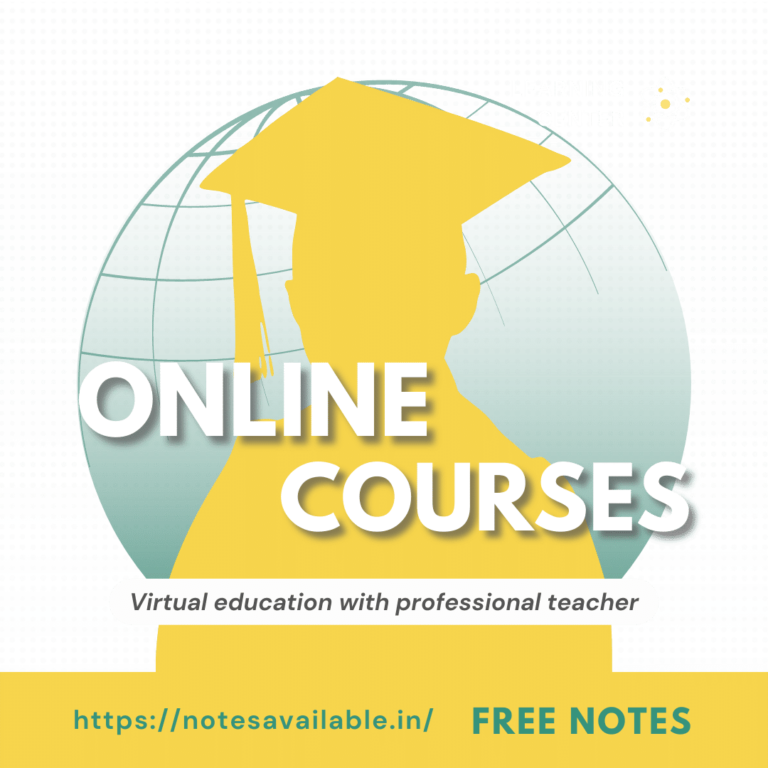ONLINE EDUCATION - Best Learning Platform
Online education is a versatile method of delivering instruction that includes all forms of learning that happen online. Teachers can reach students who would not be able to enrol in a typical classroom setting through online learning, which also enables students who need to work on their own time schedules and at their own pace.
Online and distant learning degrees are widely available and are growing quickly in most disciplines. The number of educational facilities and institutions that provide online instruction is likewise rising. Students pursuing degrees online need to be picky so that their training is completed through an accredited and reputable university.

RATIONALE FOR CONSIDERING ONLINE EDUCATION
Because it gives students a lot of freedom, online education has emerged as a feasible and exciting way of instruction delivery in the global corporate world that operates on a 24/7 schedule (24 hours per day/7 days per week). Students now have access to knowledge that was previously only available in a regular classroom because to the expansion of the Internet and computer technologies. According to studies, students can learn just as well online as they do in a regular classroom.
POSITIVE AND NEGATIVE EFFECTS OF LEARNING ONLINE
Students can benefit from online learning in a number of ways since they can:
- possess the ability to work at their own pace and time while attending classes.
- Face no parking or commuting issues
- They learn to take charge of their own education by using the knowledge at their disposal.
- Find submitting chores to be convenient and simple.
- Are more likely to express their own views, discuss topics with other students, and learn from them during group conversations.
Some students may have negative effects from online learning because:
- May miss having direct interactions with the teacher and other pupils.
- May favour attending conventional classrooms with a teacher who instructs and mentors them through the course.
- Find it difficult to get the appropriate equipment, and that there isn’t any technical help available.
FUTURE OF ONLINE EDUCATION
Online education will not go away. Since the online classroom allows for flexibility with their hectic schedules, many students prefer it. In today’s society, students must become lifelong learners due to the abundance of information and knowledge, and online education plays a significant role in assisting people in accessing learner-centered and self-directed learning.
Increased software, technology, and Internet access will increase the number of alternatives for online learning. The future of online education is bright because student enrollment is rising faster than new classrooms can be constructed, students are becoming more tech-savvy, and more students are pursuing an education that suits their needs. As they grow more prevalent, online degree programmes will gain more acceptance.
Online Education Programs

100% Online Education – Completely online degrees can be obtained from the convenience of your home without the need to travel to a campus.
Hybrid Education – Students can pursue a mix of online and on-campus courses through hybrid education.
Online Courses – Although they may be a requirement for a degree, online courses can also be taken independently to learn a skill or fully grasp a subject.
Massive Open Online Courses- or MOOCs, are typically taught in lecture format to online “classrooms” with as many as 10,000 students.

10 Advantages of Online Classes
Some students reside in places without colleges. Some people want to go to college but are unable to leave their families or their full-time employment to do so.
Online learning has grown to be a well-liked option for Americans who want to complete their college education while juggling their family and work commitments. Nearly 20 million students in the United States signed up for at least one online (also known as distance learning) course between 2002 and 2010, more than double the number of students enrolled in on-campus classes. Read More
Ten Major Advantages of Online Education are Listed Below:
1. Work whenever and wherever you want
For students who must juggle multiple responsibilities, this benefit of online education is the most alluring. It is really convenient to get class materials and turn in work because everything is available online. As long as assignment due dates are met, the student decides when and where this occurs.
2. Immediately review lectures
The tendency to daydream is common during lectures. Jonathan Schooler, a psychologist at the University of California, discovered that during a 45-minute class period, pupils lose focus roughly 5 times. However, in many online courses, students have the option to study lecturers’ comments right away by pausing the audio or video or reading the transcript that was provided with the lecture.
3. Less threatening
In school settings, many kids find it difficult to speak in front of others. Sharing ideas with others can be lot simpler when doing so online. Online education tends to encourage improved class engagement, with 74 percent of people suffering from speech anxiety, according to the National Institute of Mental Health.
4.) More contemplative time before speaking
Online education still includes a conversation component, frequently in the form of a forum or message board. On-campus students are required to make decisions or create ideas fast in class, and they occasionally speak before they have thoroughly thought about everything. Students can take as much time as they need in an online setting to consider and develop their own ideas. Greater confidence and more beautiful dialogues may result from this.
5.) Put ideas first
Online students don’t have to worry about body language obstructing their message because an estimated 93 percent of communication is non-verbal. While there are occasions when body language can be useful, academics are more about ideas, and online education removes bodily judgments that might impair logical conversation.
6.) Intergroup dialogue
Today, group projects and teamwork are commonplace in degree programmes. Collaboration with others on campus or in the community entails setting out specific days and hours so that everyone can attend. However, distance learning programmes encourage online collaboration and let students collaborate with team members via chat rooms, email, and other simple tools.
7.) A flexible schedule for learning
On-campus students might have to go through lengthy in-person lectures. While not all online courses are created equally, many make use of PowerPoint presentations and other breakable media. The first half of a lesson can therefore be experienced one day, and the second half the next day. Those who don’t want to sit still for extended periods of time may find this to be extremely useful.
8.) Cost
Despite the fact that the cost of an online course can be equal to or higher than that of a traditional course, students can save money by avoiding various costs associated with on-campus education, such as lab fees, travel expenses, parking fees, housing fees, etc. Imagine attending college in Mumbai despite residing in Dhule.
9.) Variety
Traditional students may have just local instructors and classes available to them. Without leaving their house, the online student can take a French course from a teacher in France and a trip writing course from a writer who is currently travelling.
10.) Availability of instructors
It can be difficult to speak with a professor after class in traditional colleges and universities. Yes, teachers have office hours, but they are frequently only one or two hours each week, and there are too many kids waiting for the teacher’s attention. While online teachers might also have specific hours for student contact, web-based technology greatly simplify talking to many students at once. Professors can also log on after hours or during breaks to answer students’ queries, post comments, and more.
